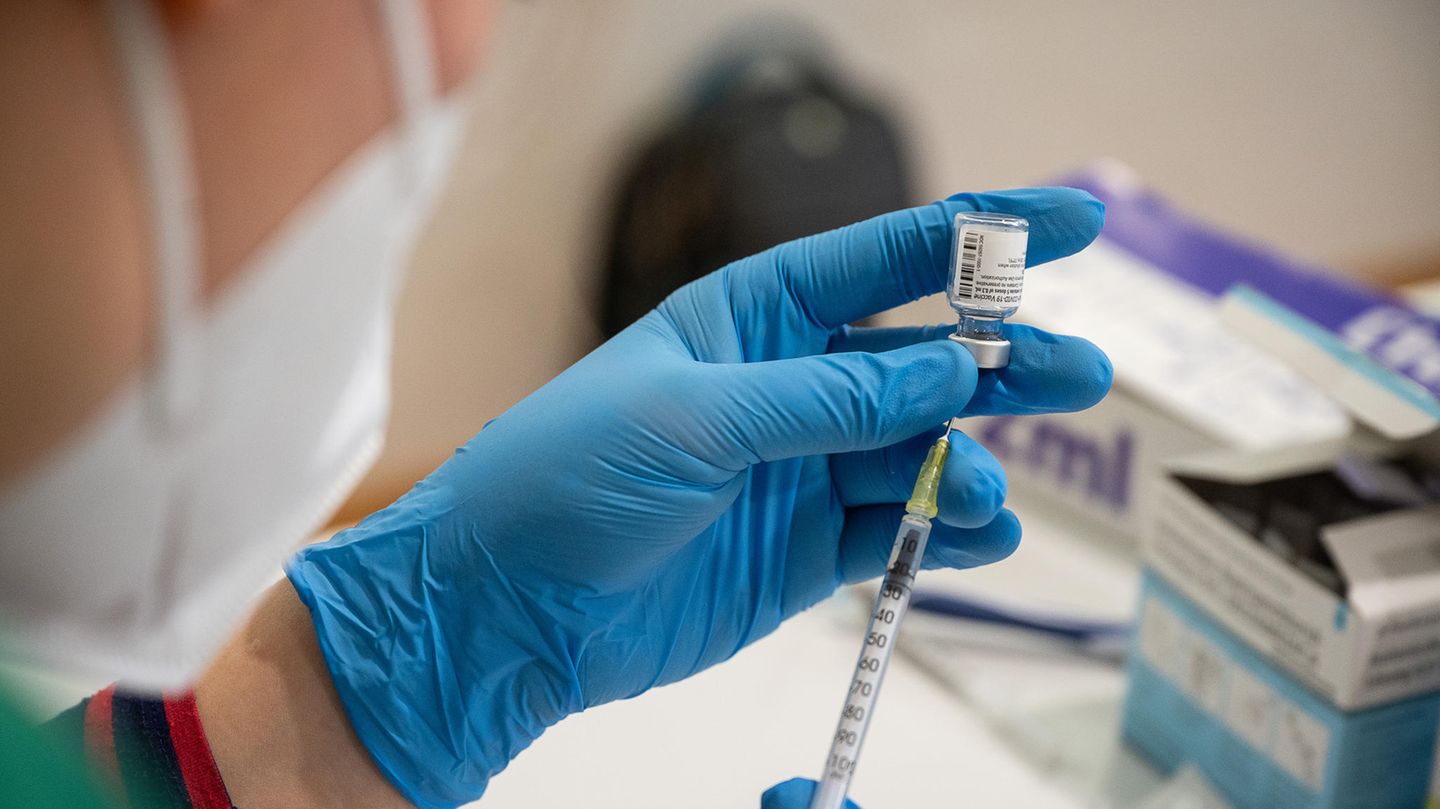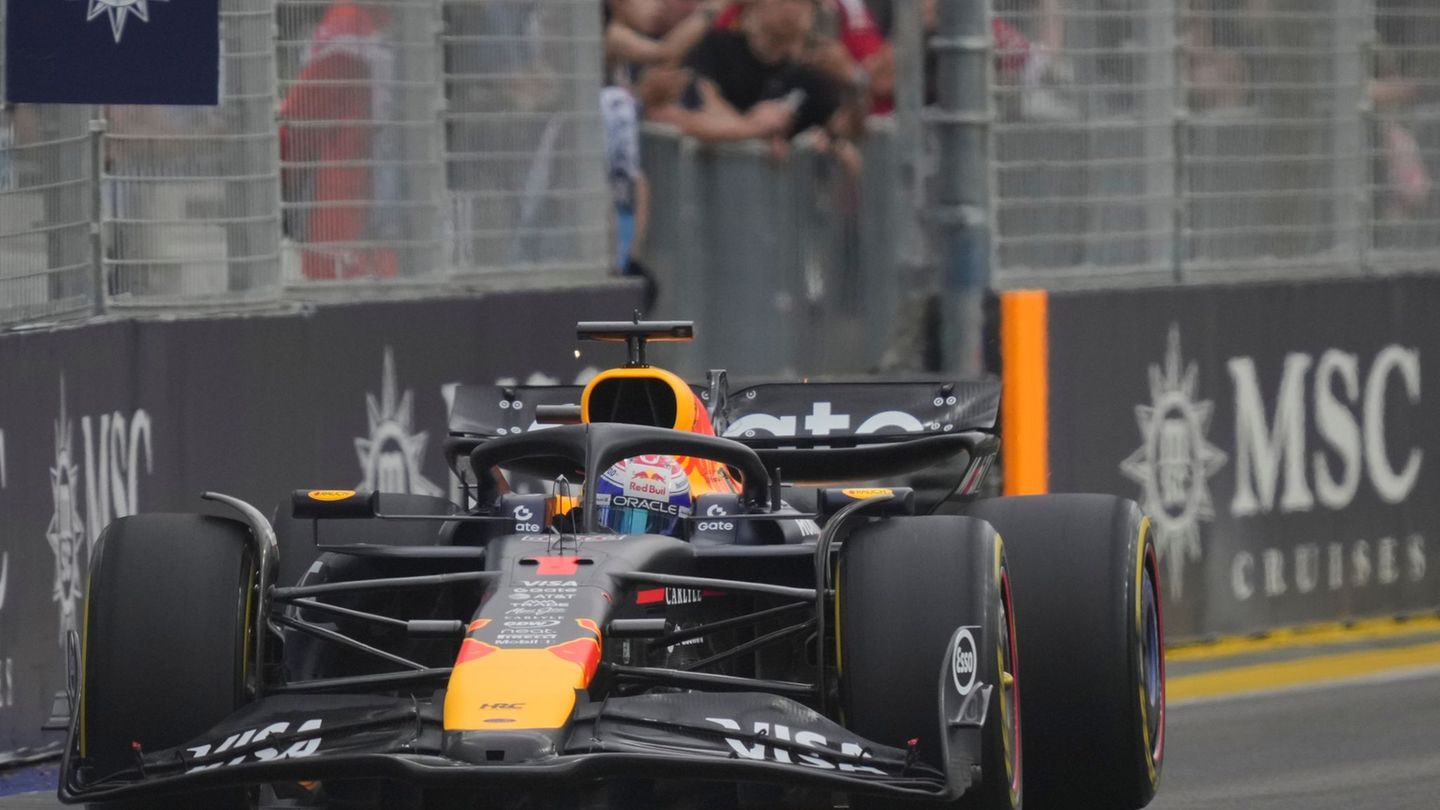National player Joshua Kimmich started a debate on the weekend with his vaccination skepticism, in which reference is also made to so-called “dead vaccines” against the corona virus. What’s it all about?
National player Joshua Kimmich (26) says he has not yet been vaccinated against the corona virus – he had “a few personal concerns, especially about the lack of long-term studies,” the Bayern Munich player had on the weekend after the game against 1899 Hoffenheim granted in the TV channel Sky. But he is not a “corona denier” or “opponent of vaccinations”. It is “very possible” that he will be vaccinated in the future. However, the 26-year-old player did not provide any details about when this could be the case and which vaccine would be suitable for him.
With his statements, the professional footballer triggered a public discussion.
In the current debate and in reports on the topic, reference is also made to so-called dead vaccines against the coronavirus. This is not surprising: it has long been known that inactivated vaccines are the preferred choice for those who are undecided about vaccination. For example, the Austrian professional tennis player Dominic Thiem recently stated that he had not yet been vaccinated because he was waiting for a dead vaccine. Dead vaccines against the coronavirus have not yet been approved in the European Union, but are being investigated in clinical studies.
Statements like these quickly lead to the assumption that dead vaccines may be safer than vaccines against the coronavirus that have already been approved. Why this is not the case and why a possible approval of the vaccines still makes sense – an overview.
What is the difference between dead vaccines and corona vaccines that have already been approved, such as vector and mRNA vaccines?
All current vaccines against the coronavirus basically work in the same way: They induce the body to build up a protective immune response against the virus and thus lower the risk of severe disease and death.
Vaccines against Covid-19 and vaccine candidates are based in part on different technologies: mRNA vaccines (Biontech / Pfizer, Moderna) contain so-called “messenger RNA”, which provides the body with the blueprint for a virus protein. In vector vaccines (Astrazeneca, Johnson & Johnson), genetic information of the virus is built into harmless carrier viruses, so-called vectors.
Inactivated vaccines against the coronavirus sometimes contain the entire coronavirus, but in an inactivated form. The killed pathogens are usually treated with a potentiator in order to induce a sufficiently good immune response after the vaccination. Important to know: Inactivated vaccines also include vaccines that only contain components or individual molecules of the pathogen – so-called split or subunit vaccines.
Why do some vaccine skeptics want to wait for a dead vaccine against the coronavirus to be approved?
People who have been skeptical about vaccination up to now sometimes argue that vaccine technologies based on mRNA or vectors are still quite new. Possible side effects are therefore not easily foreseeable, so the argumentation. Following this logic, inactivated vaccines should pose fewer potential risks, as the technology has been in use for many years, for example in the form of vaccines against hepatitis B and flu.
However: In the clinical studies prior to approval, every single vaccine has to prove that it is effective and safe. General statements about certain vaccine classes are therefore not possible. This shows because the effectiveness of the vaccine candidate left much to be desired in clinical studies, the agent will not come on the market.
For the already approved mRNA and vector vaccines, the data on safety and efficacy from the approval studies have been available for a long time. In addition, there is data from further examinations and studies, since vaccines are continuously monitored even after approval and reports of suspected side effects are investigated. The latter is responsible for the latter in Germany.
The immunologist Carsten Watzl believes that the current corona vaccines are causing a frequent side effect that will only be recognized in a year. The reason: Side effects “always happen very shortly after the vaccination,” said Watzl. This is due to the fact that the immune reaction caused by the vaccine is over after a few weeks and the vaccine disappears from the body again.
What is commonly known as long-term effects of vaccinations are actually rare side effects that occur shortly after vaccination, but can only be associated with the vaccine after some time – simply because they are so rare. Since current vaccines have been inoculated millions of times and in a relatively short time, even the rarest side effects are quickly recognized as such, says Watzl.
He cites cases of myocarditis as an example. It was shown that after vaccinations with Biontech / Pfizer or Moderna, heart muscle inflammation can occur in very rare cases, especially in adolescents and young men – an age group that has an increased risk of this disease even without vaccination. Heart muscle inflammation is also observed after Covid-19 diseases.
If you had only had one million Covid vaccinations per year in this age group, it would have taken years to recognize the rare side effect, according to Watzl. “So what do people who want to wait for long-term studies want to wait for?”, Says Watzl. “An even rarer side effect that only occurs in a certain population group in 1 million people vaccinated?”
If a vaccine is released for use in humans, there are accompanying studies that examine exactly whether serious side effects can occur when using it, Stiko boss Thomas Mertens also emphasized. “You have to consider that seven billion doses of people have now been vaccinated with Covid-19 vaccine,” he said. “It is clear that there can be no ten-year observational studies when a vaccine is used for almost a year.” However, this also applies to every new drug, as well as to every other vaccine that is used.
When will a dead vaccine against the coronavirus be approved in the EU?
In some countries, including China, dead vaccines against the coronavirus are already being used. However, it is not yet possible to foresee when it will be approved in the EU. Experts are currently assuming that it could be a few more months before the first dead vaccine can be vaccinated in Germany – provided it is approved.
are currently in the approval process at the European Medicines Agency EMA, including a vaccine from Sanofi / GSK. A dead vaccine from Novavax (NVX-CoV2373) is also currently being examined by the EMA. It contains components of the so-called spike protein, with which the coronavirus can dock onto human cells. But: The mere fact that a vaccine is being tested by the EMA does not automatically mean that it will also be approved.
When people talk about dead vaccines, the name of the Franco-Austrian company is often mentioned. Last week the company presented positive results for its inactivated vaccine “VLA2001” from the clinical phase 3 study. Accordingly, a higher mean value of neutralizing antibodies was found in test subjects compared to the Astrazeneca vaccine. The company announced that the agent was “generally well tolerated”. According to the information, more than 4,000 people aged 18 and over in the UK took part in the study. However, there is currently no approval procedure for this vaccine at the European Medicines Agency (EMA).
Federal Minister of Health Jens Spahn (CDU) plans with around 70 million doses of dead vaccines. According to the “Ärzteblatt”, they are distributed among the vaccines from the manufacturers Sanofi (42 million), Novavax (16.3 million) and Valneva (eleven million). The lion’s share comes from Biontech / Pfizer’s mRNA vaccine (84.4 million doses ordered). There are also orders for Moderna (31.8 million cans) and Johnson & Johnson (18.3 million cans).
Is it worth waiting for dead vaccines to be approved?
Experts agree: the approved vaccines against the coronavirus are safe and effective. “There is hardly a vaccine that has been investigated as well and broadly as the mRNA vaccines are now,” said virologist Ulrike Protzer from the Technical University of Munich.
Undecided people who still want to wait for a dead vaccine to be approved must be aware that the waiting time goes hand in hand with the risk of contracting the coronavirus in the meantime. Long-term consequences of an illness with the coronavirus Currently, the number of cases is also increasing sharply – a development
The approval of a dead vaccine could ultimately not only benefit the undecided: The vaccine candidates are also being discussed as possible promising candidates for booster or booster vaccinations.
You can also read about this:




